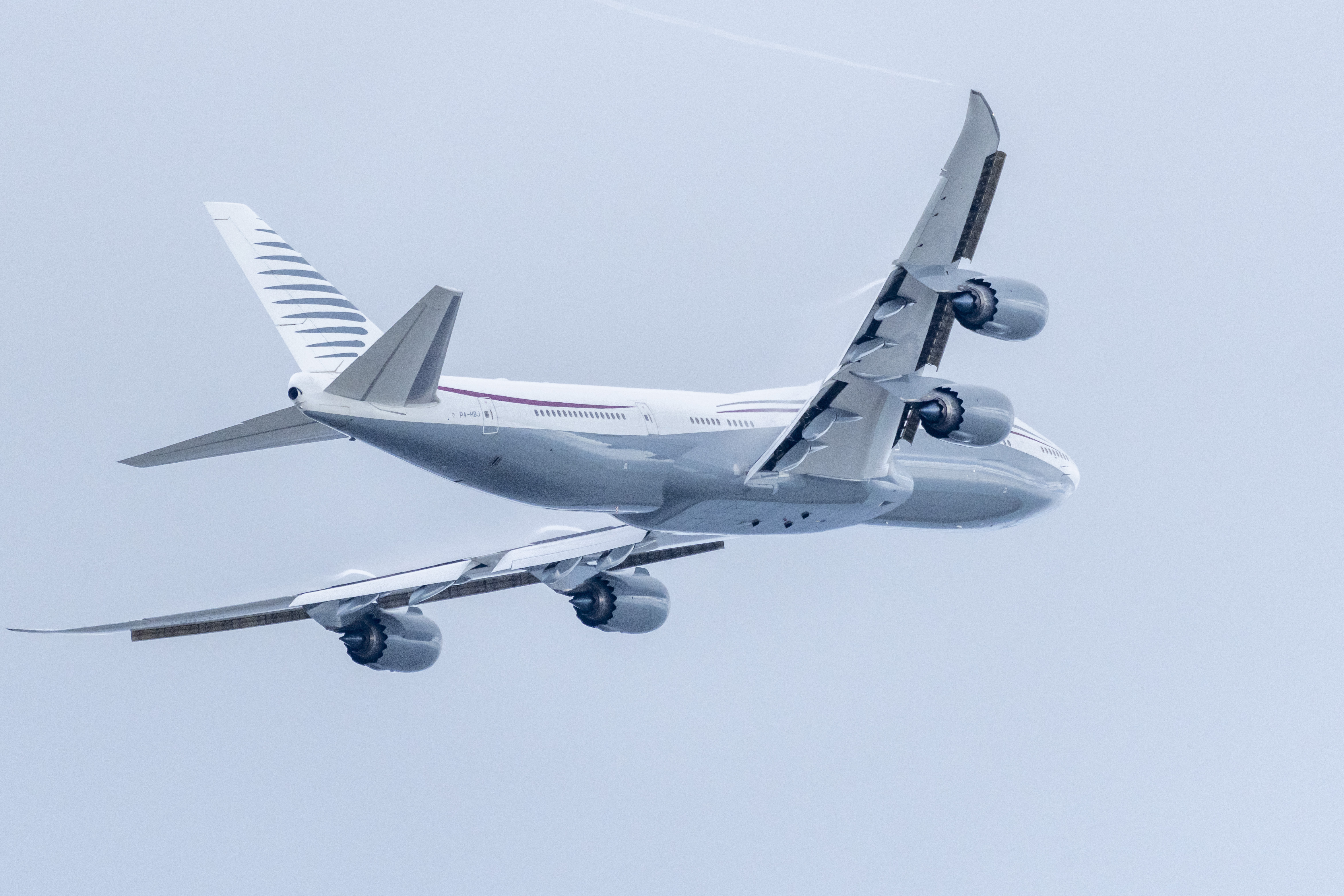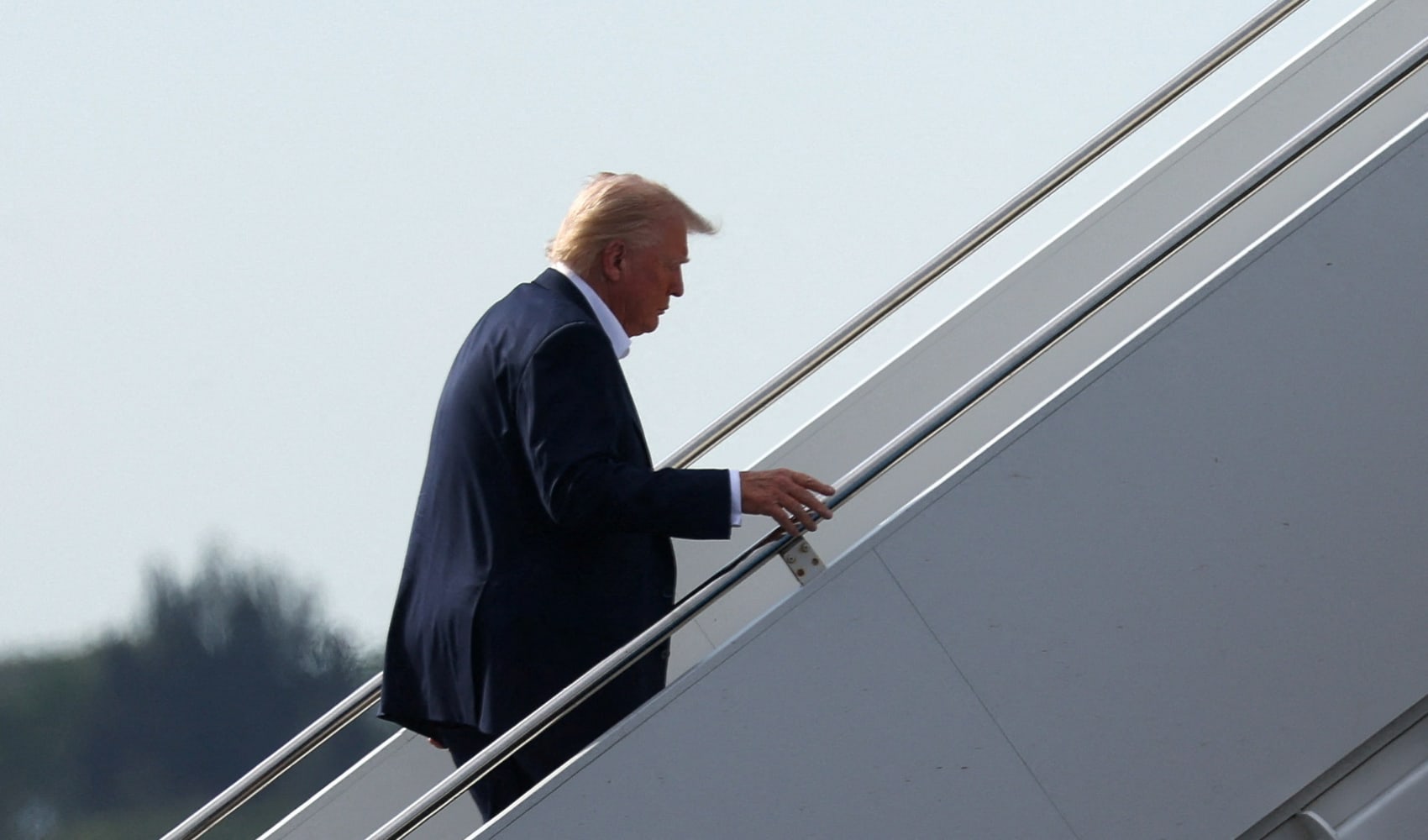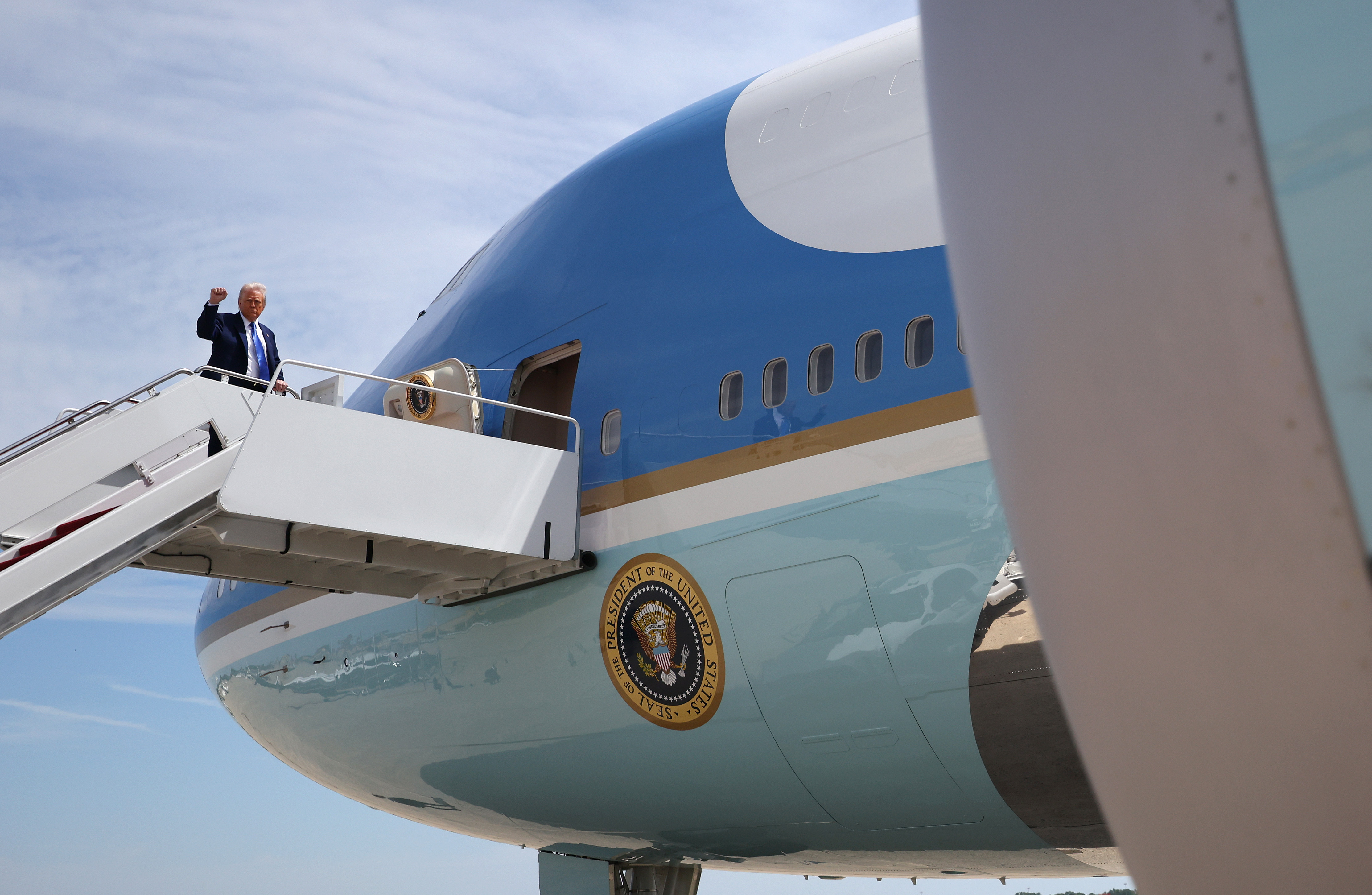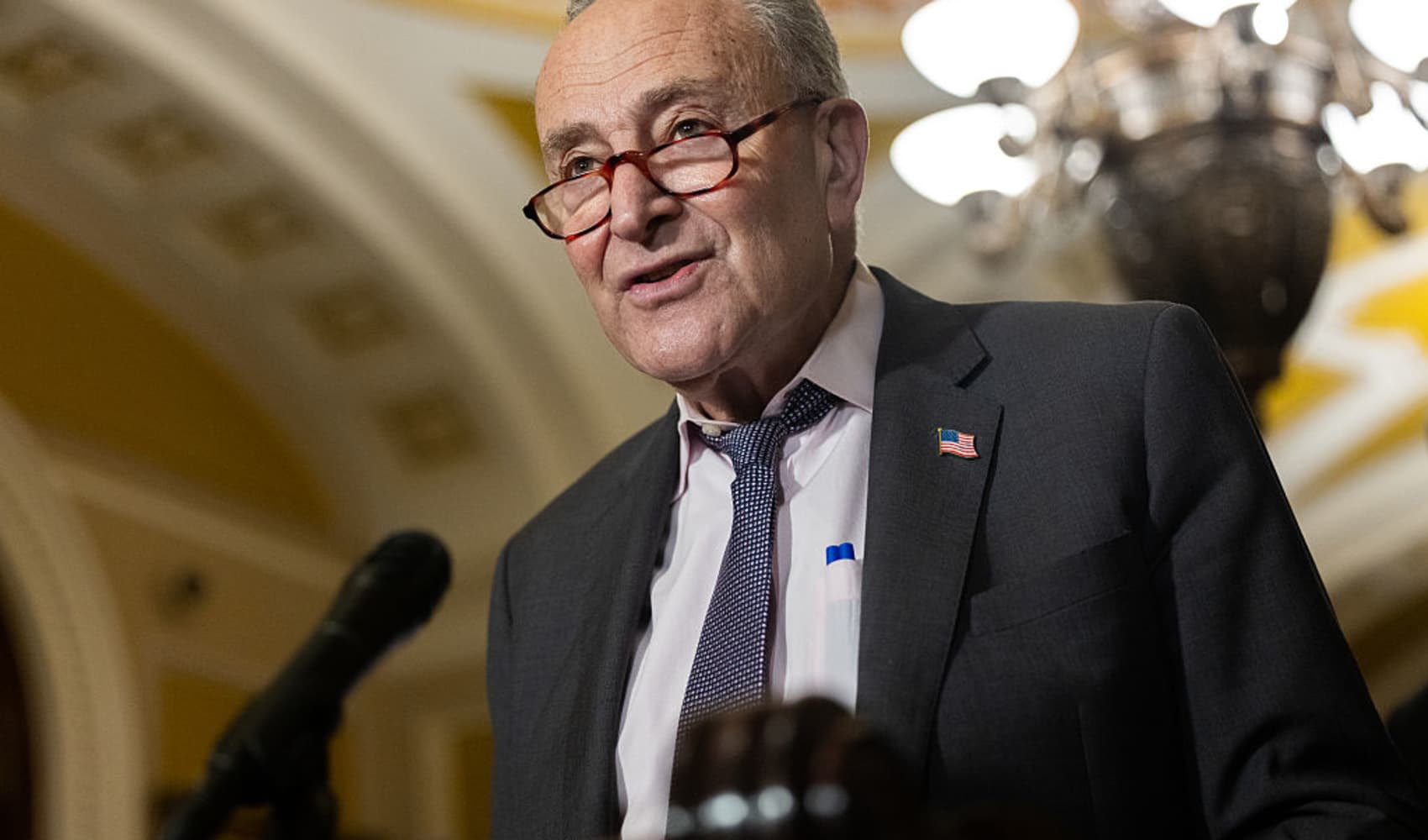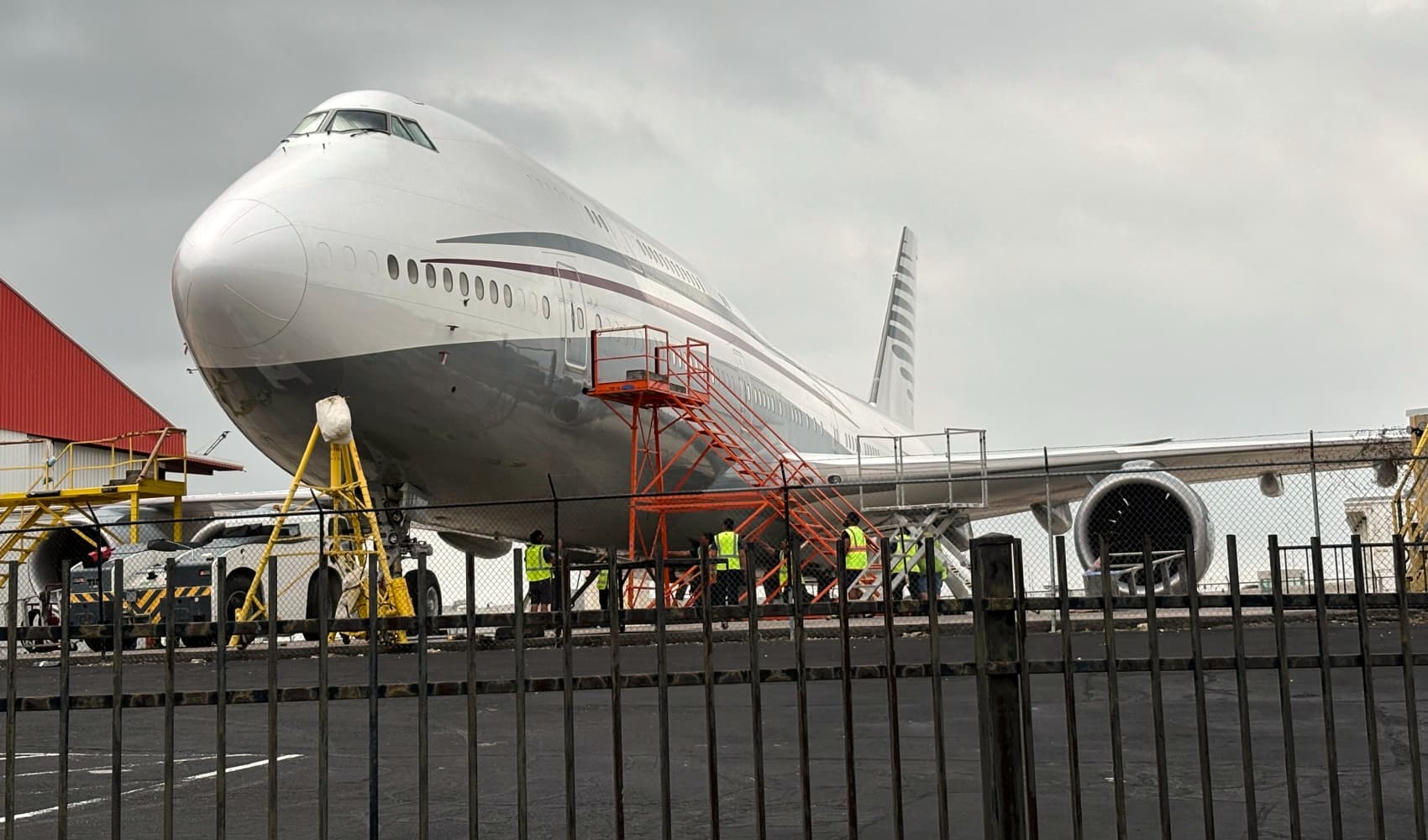Trump's Free Air Force One? Qatar Gift Sparks Debate!
Trump's Air Force One Upgrade: A Qatari Gift Horse?
Introduction: A Jumbo Jet-Sized Controversy
Imagine receiving a gift so grand, so opulent, that it could literally fly you around the world. That's the potential scenario swirling around former President Donald Trump, with reports suggesting the possibility of the ruling family of Qatar gifting him a luxury Boeing 747-8. But is this a genuine act of generosity, or is there more to this high-flying proposition than meets the eye? This article dives deep into the potential Qatari gift and the ensuing political storm, exploring the ethical, financial, and security implications of such a grand gesture.
The Gift: A Boeing 747-8 Fit for a President (or Former President)
What Makes This Plane So Special?
The Boeing 747-8 is not just any airplane; it's a symbol of luxury and power. Think of it as a flying palace, capable of long-haul flights and equipped with all the amenities you could imagine. Its spacious interior can be customized for offices, bedrooms, and even conference rooms, making it a truly impressive mode of transportation.
Why Qatar?
The relationship between the United States and Qatar is complex, involving strategic partnerships, economic ties, and diplomatic considerations. Qatar has been a key ally in the Middle East, and a gift of this magnitude could be seen as a way to strengthen those bonds. However, it also raises questions about potential influence and quid pro quo scenarios.
Trump's Defense: A "Fiscally Smart Move"
The Social Media Storm
As you might expect, the prospect of accepting such a lavish gift sparked immediate controversy. Trump took to social media to defend the idea, framing it as a fiscally responsible decision for the country. He argued that receiving the plane as a gift would save taxpayers money, comparing it to the cost of purchasing a new Air Force One.
"Free of Charge": The Key Argument
Trump's primary defense revolves around the "free of charge" aspect. He emphasizes that the Defense Department would be receiving the 747-8 as a gift, without any direct financial outlay. He suggests that this would be a temporary replacement for the aging Air Force One fleet, saving the government from having to pay "top dollar" for a new aircraft.
The Ethics Question: Is It Appropriate?
Gift Giving and Foreign Influence
Accepting a gift of this magnitude from a foreign government raises significant ethical concerns. It opens the door to questions about potential influence and whether the gift could sway policy decisions. The Emoluments Clause of the U.S. Constitution prohibits government officials from accepting gifts from foreign powers without congressional consent.
The Appearance of Impropriety
Even if technically legal, the appearance of impropriety is a major factor. The public could perceive the gift as a conflict of interest, eroding trust in the government and its decision-making processes. It's like receiving a bribe disguised as a present, even if that wasn't the intention.
The Practicalities: Converting a Luxury Jet into Air Force One
Cost Considerations
While the initial gift of the plane might be "free," the costs of converting it into a functional Air Force One replacement would be substantial. Refitting the interior with secure communication systems, defense mechanisms, and other necessary features would likely require a significant investment. It's like buying a fixer-upper house; the initial price might be low, but the renovation costs can quickly add up.
Security Concerns
Security is paramount when it comes to Air Force One. Transforming a commercially available jet into a secure presidential aircraft would involve extensive modifications and upgrades to protect against potential threats. This includes advanced encryption, anti-missile systems, and other classified security measures.
Political Fallout: Democrats and the Opposition
Criticism and Scrutiny
As Trump predicted, the prospect of accepting the Qatari gift drew immediate criticism from Democrats and other political opponents. They argued that it was unethical, potentially illegal, and sent the wrong message about the relationship between the U.S. and foreign governments. The opposition likely sees this as an opportunity to highlight potential conflicts of interest and question Trump's decision-making.
Transparency and Accountability
Critics are demanding full transparency and accountability regarding the potential Qatari gift. They are calling for investigations into the ethical and legal implications, as well as a thorough assessment of the costs and benefits of accepting the aircraft. This is like shining a spotlight on a controversial deal, forcing all parties involved to justify their actions.
The Legality: Navigating the Emoluments Clause
A Constitutional Quandary
The Emoluments Clause of the U.S. Constitution prohibits government officials from accepting gifts, emoluments, office, or title of any kind from any king, prince, or foreign state without the consent of Congress. This clause is designed to prevent foreign influence and ensure the independence of U.S. officials.
Legal Interpretations and Challenges
The interpretation of the Emoluments Clause has been the subject of much debate and legal challenges. Some argue that it only applies to gifts that directly benefit the official personally, while others take a broader view, arguing that it applies to any gift that could potentially influence their actions. The legal complexities surrounding this issue make it a potential minefield.
Public Opinion: Weighing the Pros and Cons
A Divided Nation
Public opinion on the potential Qatari gift is likely to be divided along partisan lines. Supporters of Trump might view it as a savvy financial move, while opponents are more likely to see it as unethical and potentially illegal. Social media and news outlets are likely to be filled with passionate debates on both sides of the issue.
Trust in Government
Ultimately, the public's perception of this issue will depend on their level of trust in the government and their views on the relationship between the U.S. and foreign powers. Any perceived conflicts of interest or lack of transparency could further erode public trust. It's like a fragile bridge; any cracks in its foundation can lead to its collapse.
Alternative Solutions: Modernizing Air Force One
Exploring Other Options
Rather than relying on a gift from a foreign government, there are other options for modernizing Air Force One. These include purchasing new aircraft through traditional government procurement processes, leasing aircraft, or upgrading existing planes. Each of these options has its own set of costs and benefits, but they avoid the ethical and legal concerns associated with accepting a gift from a foreign power.
Investing in American Manufacturing
Purchasing new Air Force One aircraft from American manufacturers could also boost the U.S. economy and create jobs. This would be a more patriotic approach, showcasing American ingenuity and craftsmanship. It's like buying local; it supports your community and strengthens your economy.
The Future of Air Force One: A Critical Decision
Long-Term Implications
The decision regarding the future of Air Force One will have long-term implications for the U.S. government. It will not only impact the safety and security of the president but also send a message about the values and priorities of the nation. Choosing the right path requires careful consideration of the ethical, financial, and strategic factors involved.
Setting a Precedent
The outcome of this situation will set a precedent for future interactions between the U.S. government and foreign powers. It will shape the way the world views the United States and its commitment to ethical governance. It's like writing a new chapter in the book of international relations; the words you choose will have a lasting impact.
Conclusion: A Gift with Strings Attached?
The prospect of President Trump accepting a luxury Boeing 747-8 from Qatar as a potential Air Force One replacement is a complex and controversial issue. While Trump defends it as a fiscally smart move, critics raise serious concerns about ethics, legality, and potential foreign influence. The decision ultimately requires a careful weighing of the costs and benefits, with a focus on transparency, accountability, and the long-term interests of the United States. Is this truly a gift horse, or are there hidden strings attached?
Frequently Asked Questions
- Is it legal for a U.S. president to accept a gift from a foreign government?
It depends. The Emoluments Clause of the U.S. Constitution generally prohibits government officials from accepting gifts from foreign powers without congressional consent. However, there can be legal interpretations that allow for certain gifts, especially if they benefit the country rather than the individual.
- What are the ethical concerns surrounding this potential gift?
The main ethical concerns revolve around the appearance of impropriety and the potential for foreign influence. Accepting a large gift from a foreign government could create the impression that the U.S. is beholden to that country's interests.
- How much would it cost to convert a luxury Boeing 747-8 into Air Force One?
The exact cost is difficult to estimate without specific details, but it would likely be substantial. Refitting the interior with secure communication systems, defense mechanisms, and other necessary features could cost millions of dollars.
- What are the alternative options for modernizing Air Force One?
Alternatives include purchasing new aircraft through traditional government procurement processes, leasing aircraft, or upgrading existing planes. These options avoid the ethical and legal concerns associated with accepting a gift from a foreign power.
- How might this situation impact the relationship between the U.S. and Qatar?
The outcome of this situation could either strengthen or strain the relationship between the U.S. and Qatar. A transparent and ethical decision-making process is crucial to maintaining a positive and productive partnership.
